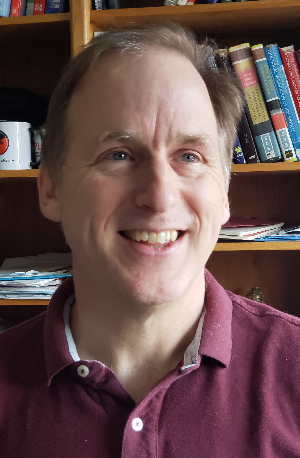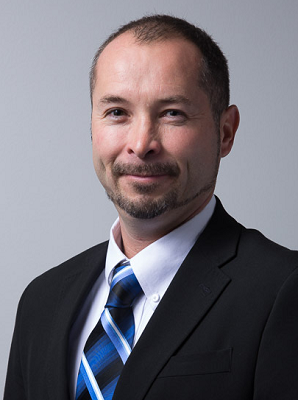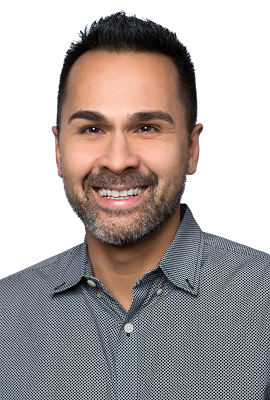
coupled with the Military and Aerospace Programmable Logic Devices (MAPLD) Workshop
Featuring over 700 talks spanning years 2006-2019
Jump to the Archives
Sign up / encourage others to join our official email list for workshop announcements
2020 Single Event Effects (SEE) Symposium and Military and Aerospace
Programmable Logic Devices (MAPLD) Workshop
Acknowledging the events of the past year, our technical chairs especially encourage the submission of content focusing on:
| 1) Standards & Methods | 4) Modeling and Simulation |
| 2) Alternatives to Heavy Ion and Proton Testing | 5) Relevant Test Facility Updates |
| 3) Space Environments | |
| SEE Symposium | MAPLD |
| New! Artificial Intelligence (AI) / Machine Learning (ML) in FPGAs/SoCs: AI / ML design considerations for reliable terrestrial, avionic, and aerospace applications; using AI for SEE mitigation; SEE evaluation of designs leveraging AI / ML | |
| Phenomena: Upsets, Functional Interrupts, Transients, Latchup, Gate Rupture, Burnout, etc. | FPGAs/SoCs, PLDs, and New Devices: New and/or novel FPGA and PLDs; Benchmarking of FPGAs and PLDs; Applications of space-borne processing. |
| Basic Mechanisms and Modeling: Destructive and Non-Destructive Effects, Nanoscale Phenomena, Charge Transport and Collection, Impact of Circuit and Environmental Parameters, etc. | Mitigation of Single event effects in FPGAs/SoCs, PLDs, and commercial electronics: Multi-level approaches for high reliability and fault tolerance (redundancy, TMR, SET filtering, etc…), upset mitigation techniques and automated tools, etc. |
| SEE Mitigation Methods Including Radiation Hardened by Design (RHBD) and by Process (RHBP): Approaches for gaining SEE hardness in commercial devices, etc. | Designing with FPGAs/SoCs, and PLDs: agile methods, ESL/HLS and model-based engineering techniques, embedded processing, and synthesis efficiency improvements. |
| Environments and Facilities: Space, Atmospheric and Terrestrial environments. Heavy Ion, Proton, Neutron and Pulsed Laser Test Facilities. | Validation and Verification of FPGAs/SoCs, and PLDs: Verification techniques and languages such as co-simulation, System Verilog and OVM/UVM. Simulation speed-up techniques, emulation, new tools and methods for design validation. |
| Operational Regimes and Performance Data: Systems and Devices from LEO to Interplanetary, High Altitude Aircraft, and Terrestrial. | Availability/Reliability/Susceptibility of programmable devices: Failure mechanisms, reliability testing and characterization, packaging reliability, reliable design practices. |
| Electronic & Photonic Device Data and Measurement Techniques: Memories, Analog/Digital Circuits, systems-on-chip (SoCs), Field Programmable Gate Arrays (FPGAs), Optocouplers, Photonic Integrated Circuits, Power Converters, Sensors, etc. | Novel Applications and Case Studies: Reconfigurable computing, high-performance processing using programmable logic, successful deployment of programmable logic, etc. |
| Systems and Error Rate Computation: Error Mitigation, Error Detection & Correction, Multi-core Processing, and Fault Tolerant Systems; Analytic, Monte Carlo, Mixed-Level, methods, etc. | Technical Management of FPGAs and PLDs: Technical leadership, process management and metrics. |
| Education: Education Practices, Market Demands for Military and Aerospace Component Engineers, and Engineer Retention. | |
| *All options subject to change any time, per the discretion of the conference committee | |
|
2020 SEE/MAPLD Combined Workshop Final Program
Important Note to All Attendees: Presentations in each session will play in a non-stop fashion, followed by live Q&A If a session concludes earlier than anticipated, the following session(s) will remain at their scheduled time(s)
|
Tuesday, October 6 |
||||
PDT |
EDT |
Paris |
Session |
Presentation / Speaker |
6:30 AM |
9:30 AM |
3:30 PM |
Exhibitor Breakfast - EPC SPACE |
|
6:45 AM |
9:45 AM |
3:45 PM |
||
7:00 AM |
10:00 AM |
4:00 PM |
Opening Remarks - David Hansen, Single Event Effects (SEE) General Chair SEE Track Introduction - Megan Casey, SEE Technical Chair |
|
7:15 AM |
10:15 AM |
4:15 PM |
Facilities |
SEEMS - A New Facility for Single Event Effects Testing and Muon Spectroscopy Bernard Riemer, Oak Ridge National Laboratory |
7:30 AM |
10:30 AM |
4:30 PM |
The LANSCE Facility for Measurement of Neutron-induced Failure in Semiconductor Devices Stephen Wender, Los Alamos National Laboratory |
|
7:45 AM |
10:45 AM |
4:45 PM |
Radiation Effects Facility at Crocker Nuclear Laboratory Eric Prebys, University of CA Davis, Crocer Nuclear Laboratory |
|
8:00 AM |
11:00 AM |
5:00 PM |
Domestic Heavy Ion Single-Event Effects Test Facilities: Needs, Current Status, and Future Jonathan Pellish, NASA Goddard Space Flight Center |
|
8:15 AM |
11:15 AM |
5:15 PM |
Heavy Ion Beams from the K150 Cyclotron at TAMU Henry Clark, Cyclotron Institute at Texas A&M University |
|
8:30 AM |
11:30 AM |
5:30 PM |
Live Q&A for Facilities Session Speakers Moderated by: Megan Casey |
|
8:45 AM |
11:45 AM |
5:45 PM |
Exhibitor Break - STAR DUNDEE |
|
9:00 AM |
12:00 PM |
6:00 PM |
||
9:15 AM |
12:15 PM |
6:15 PM |
Invited Tutorial #1 |
Artificial Intelligence (AI) Journeys to Space Paul Armijo and George Williams, GSI Technology (40 Minute Duration, 5 Minute Q&A Moderated by Megan Casey) |
9:30 AM |
12:30 PM |
6:30 PM |
||
9:45 AM |
12:45 PM |
6:45 PM |
||
10:00 AM |
1:00 PM |
7:00 PM |
Exhibitor Break - MENTOR, A SIEMENS BUSINESS |
|
10:15 AM |
1:15 PM |
7:15 PM |
||
10:30 AM |
1:30 PM |
7:30 PM |
Military and Aerospace Programmable Logic Devices (MAPLD) Opening Remarks - Gregory Allen, MAPLD General Chair MAPLD Track Introduction - Nadia Rezzak / Pierre Maillard, MAPLD Technical Chairs |
|
10:45 AM |
1:45 PM |
7:45 PM |
FPGAs / SoCs, PLDs, and New Devices |
Heavy Ion and Proton Induced Single Event Effects on Microchip RT PolarFire FPGA Nadia Rezzak, Microchip Technology, Inc. |
11:00 AM |
2:00 PM |
8:00 PM |
Architecture and Radiation Advantage of Advanced FD-SOI FPGAs Melanie Berg, Space R2, LLC. / Lattice Semiconductor |
|
11:15 AM |
2:15 PM |
8:15 PM |
Still Latched-up After All These Years: More Clues in the 7-Series FPGA Micro-Latchup Mystery Gary Swift, Swift Engineering & Radiation Services, LLC. |
|
11:30 AM |
2:30 PM |
8:30 PM |
Live Q&A for FPGAs / SoCs, PLDs, and New Devices Session Speakers Moderated by: Nadia Rezzak, Pierre Maillard |
|
11:45 AM |
2:45 PM |
8:45 PM |
Exhibitor Break - INTEGRA TECH |
|
12:00 PM |
3:00 PM |
9:00 PM |
||
12:15 PM |
3:15 PM |
9:15 PM |
Panel Discussion: Supply Chain Risk Management |
Panelist 1: Paul Quintana, Microchip Technology, Inc. |
12:30 PM |
3:30 PM |
9:30 PM |
Panelist 2 (Live): John Latimer, Xilinx, Inc. |
|
12:45 PM |
3:45 PM |
9:45 PM |
Live Q&A Moderated by: Nadia Rezzak, Pierre Maillard |
|
1:00 PM |
4:00 PM |
10:00 PM |
Mitigation of Single Event Effects in FPGAs/SoCs, PLDs and Commercial Electronics |
Fault Injection to Verify Functional Safety Logic Joe Mallett, Synopsys |
1:15 PM |
4:15 PM |
10:15 PM |
Rethinking Your Approach to Radiation Mitigation Jacob Wiltgen, Mentor - A Siemens Business |
|
1:30 PM |
4:30 PM |
10:30 PM |
Implementing Temporal Mitigation Solutions in FPGAs Kamesh Ramani, Mentor - A Siemens Business |
|
1:45 PM |
4:45 PM |
10:45 PM |
SpaceFibre for FPGA: IPs and RTG4 Radiation Test Results Alberto Gonzalez, STAR-Dundee, Ltd. |
|
2:00 PM |
5:00 PM |
11:00 PM |
Live Q&A for Mitigation of Single Event Effects in FPGAs/SoCs, PLDs and Commercial Electronics Session Moderated by: Nadia Rezzak, Pierre Maillard |
|
2:15 PM |
5:15 PM |
11:15 PM |
Exhibitor Reception Technical / Social Meeting Rooms Provided: |
|
2:30 PM |
5:30 PM |
11:30 PM |
||
2:45 PM |
5:45 PM |
11:45 PM |
||
3:00 PM |
6:00 PM |
12:00 AM |
||
3:15 PM |
6:15 PM |
12:15 AM |
||
3:30 PM |
6:30 PM |
12:30 AM |
||
3:45 PM |
6:45 PM |
12:45 AM |
End of Tuesday Workshop Events |
|
Wednesday, October 7 |
||||
PDT |
EDT |
Paris |
Session |
Presentation / Speaker |
6:30 AM |
9:30 AM |
3:30 PM |
Exhibitor Breakfast - ASAP-1 ULTRA TEC |
|
6:45 AM |
9:45 AM |
3:45 PM |
||
7:00 AM |
10:00 AM |
4:00 PM |
||
7:15 AM |
10:15 AM |
4:15 PM |
Systems and Error Rate Computation |
Discrete Binning Analysis of Single Event Transient Pulse Width for Rate Calculations Michael Campola, NASA Goddard Space Flight Center |
7:30 AM |
10:30 AM |
4:30 PM |
The Radiation Assessment Matrix (RAM): A Systematic Approach to SEE Circuit Analysis in Support of Single-Event Effects Criticality Assessment (SEECA) Razvan Gaza, NASA Johnson Space Center |
|
7:45 AM |
10:45 AM |
4:45 PM |
Low and Medium Earth-Orbit Rates Using Design-of-Experiments and Monte-Carlo Methods David Hansen, Data Device Corporation |
|
8:00 AM |
11:00 AM |
5:00 PM |
A Track-Structure Based Approach to Upset-Rate Calculations David Hansen, Data Device Corporation |
|
8:15 AM |
11:15 AM |
5:15 PM |
Single-Event Effects Criticality Assessment (SEECA) Guidance for Implementation Michael Campola, NASA Goddard Space Flight Center |
|
8:30 AM |
11:30 AM |
5:30 PM |
Recent Results and Current Status of the Quasi-Bessel Beam Approach for Pulsed-Laser SEE Studies Joel Hales, U.S. Naval Research Laboratory |
|
8:45 AM |
11:45 AM |
5:45 PM |
Error Rate Calculation of Functional Failures Induced by Single-Event Transients in Clock Distribution Networks Thomas Lange, iRoC Technologies / Politecnico di Torino |
|
9:00 AM |
12:00 PM |
6:00 PM |
Live Q&A for Systems and Error Rate Computation Session Speakers Moderated by: Megan Casey |
|
9:15 AM |
12:15 PM |
6:15 PM |
Exhibitor Break - EMPC |
|
9:30 AM |
12:30 PM |
6:30 PM |
||
9:45 AM |
12:45 PM |
6:45 PM |
Data Analysis |
Analysis of Single Event Transients (SETs) using Machine Learning and Ionizing Radiation Effects Spectroscopy (IRES) Daniel Loveless, University of Tennessee - Chattanooga |
10:00 AM |
1:00 PM |
7:00 PM |
Novel Approach to Modeling and Prediction of Single Event Upsets at Component Level Ashok Alagappan, ANSYS |
|
10:15 AM |
1:15 PM |
7:15 PM |
Data: What Are They Good For? (Absolutely...) Ray Ladbury, NASA Goddard Space Flight Center |
|
10:30 AM |
1:30 PM |
7:30 PM |
Live Q&A for Data Analysis Session Speakers Moderated by: Megan Casey |
|
10:45 AM |
1:45 PM |
7:45 PM |
Exhibitor Break - RADIATION TEST SOLUTIONS |
|
11:00 AM |
2:00 PM |
8:00 PM |
||
11:15 AM |
2:15 PM |
8:15 PM |
Invited Tutorial #2 |
Better FPGA Verification with Open Source VHDL Verification Methodology (OSVVM) Jim Lewis, SynthWorks (40 Minute Duration, 5 Minute Q&A Moderated by Nadia Rezzak and Pierre Maillard) |
11:30 AM |
2:30 PM |
8:30 PM |
||
11:45 AM |
2:45 PM |
8:45 PM |
||
12:00 PM |
3:00 PM |
9:00 PM |
Exhibitor Break - COBHAM SEMICONDUCTOR AND SPACE SOLUTIONS |
|
12:15 PM |
3:15 PM |
9:15 PM |
||
12:30 PM |
3:30 PM |
9:30 PM |
Validation and Verification of FPGAs / SoCs and PLDs |
Using Fault Injection to Predict the Error Rate of a Large Complex Design in a Non-Hardened SRAM-Based Xilinx 7-Series FPGA Patrick Fleming, Raytheon Space and Airborne Systems |
12:45 PM |
3:45 PM |
9:45 PM |
Fault Tracking and Modeling in Advanced Node Processors of Single Event Effects Matthew Cannon, Sandia National Laboratories |
|
1:00 PM |
4:00 PM |
10:00 PM |
PMPedia (Parts, Materials, and Processes) Encyclopedia: A Crowd-Sourced Space Radiation Electronics Knowledge Repository Allyson Yarbrough, The Aerospace Corporation |
|
1:15 PM |
4:15 PM |
10:15 PM |
Accelerating and Improving Design Reviews with Analysis Tools Jason Riddley, NASA Jet Propulsion Laboratory |
|
1:30 PM |
4:30 PM |
10:30 PM |
Executable Specifications for Hardware Assurance of SoCs and FPGAs Alric Althoff, Tortuga Logic |
|
1:45 PM |
4:45 PM |
10:45 PM |
Using Static RTL Analysis to Accelerate Satellite FPGA Verification (Live) Scott Calkins, Blue Pearl Software |
|
2:00 PM |
5:00 PM |
11:00 PM |
Live Q&A for Validation and Verification of FPGAs / SoCs and PLDs Session Speakers Moderated by: Nadia Rezzak, Pierre Maillard |
|
2:15 PM |
5:15 PM |
11:15 PM |
Poster Session |
All Posters Visible & Interactive Throughout Entire Session SEE Testing of Renesas Intersil Current Sense Amplifier Protons, Protons Everywhere - But Where Do We Test in the U.S.? Single Event Effects Characterization of Microchip Programmable Current Limiting Power Switch LX7712 Technology Evaluation for High Voltage Space Applications Reconfigurable Image Processing Applications on FPGAs Scrubbing and In-Orbit Re-Configuration Options for Ultra Deep Sub-Micron Space-Grade FPGAs |
2:30 PM |
5:30 PM |
11:30 PM |
||
2:45 PM |
5:45 PM |
11:45 PM |
||
3:00 PM |
6:00 PM |
12:00 AM |
||
3:15 PM |
6:15 PM |
12:15 AM |
||
3:30 PM |
6:30 PM |
12:30 AM |
||
3:45 PM |
6:45 PM |
12:45 AM |
End of Wednesday Workshop Events |
|
Thursday, October 8 |
|||||||||||||||||||||
PDT |
EDT |
Paris |
Session |
Presentation / Speaker |
|||||||||||||||||
6:30 AM |
9:30 AM |
3:30 PM |
Exhibitor Breakfast - EPC SPACE |
||||||||||||||||||
6:45 AM |
9:45 AM |
3:45 PM |
|||||||||||||||||||
7:00 AM |
10:00 AM |
4:00 PM |
|||||||||||||||||||
7:15 AM |
10:15 AM |
4:15 PM |
Invited Tutorial #3 |
Fault-tolerance Concepts, Single Event Effects Characterization, FPGA Scrubbing, and Other Use Cases Using Industry Product Examples Lucas Tambara, Cobham Gaisler (40 Minute Duration, 5 Minute Q&A Moderated by Nadia Rezzak and Pierre Maillard) |
|||||||||||||||||
7:30 AM |
10:30 AM |
4:30 PM |
|||||||||||||||||||
7:45 AM |
10:45 AM |
4:45 PM |
|||||||||||||||||||
8:00 AM |
11:00 AM |
5:00 PM |
Exhibitor Break - NORTHWESTERN MEDICINE PROTON CENTER |
||||||||||||||||||
8:15 AM |
11:15 AM |
5:15 PM |
|||||||||||||||||||
8:30 AM |
11:30 AM |
5:30 PM |
Devices |
NVIDIA Jetson TX2i Radiation Report Christopher Heistand, Johns Hopkins Applied Physics Laboratory |
|||||||||||||||||
8:45 AM |
11:45 AM |
5:45 PM |
Electrical Measurement of Cell-to-Cell Variation of Critical Charge in SRAM and Sensitivity to Single-Event Upsets by Low-Energy Protons James Cannon, University of Tennessee - Chattanooga |
||||||||||||||||||
9:00 AM |
12:00 PM |
6:00 PM |
Stuck Bits from Co-60, Electrons, Protons, and Heavy Ions Steven Guertin, NASA Jet Propulsion Laboratory |
||||||||||||||||||
9:15 AM |
12:15 PM |
6:15 PM |
Live Q&A for Devices Session Speakers Moderated by: Megan Casey |
||||||||||||||||||
9:30 AM |
12:30 PM |
6:30 PM |
Exhibitor Break - NASA ELECTRONIC PARTS AND PACKAGING (NEPP) PROGRAM |
||||||||||||||||||
9:45 AM |
12:45 PM |
6:45 PM |
|||||||||||||||||||
10:00 AM |
1:00 PM |
7:00 PM |
Designing with FPGAs / SoCs and PLDs |
Performance Evaluation of Wide-range of AI Applications on Rasberry Pi Mohamed El-Hadedy, California Polytechnic University |
|||||||||||||||||
10:15 AM |
1:15 PM |
7:15 PM |
Development and FPGA Roadmap for LEON5FT and NOEL-V Processor Models Jan Andersson, Cobham Gaisler |
||||||||||||||||||
10:30 AM |
1:30 PM |
7:30 PM |
The Power of Dense Silicon: Trending Features and Support at Chip-Level Enabling New Levels of Integration and Dependability for Avionics Systems Jyotika Athavale, Intel Corporation |
||||||||||||||||||
10:45 AM |
1:45 PM |
7:45 PM |
Towards the Use of Machine Learning to Estimate the Functional Failure Rate of Complex Circuits Thomas Lange, iRoC Technologies / Politecnico di Torino |
||||||||||||||||||
11:00 AM |
2:00 PM |
8:00 PM |
Live Q&A for Designing with FPGAs / SoCs and PLDs Session Speakers Moderated by: Nadia Rezzak, Pierre Maillard |
||||||||||||||||||
11:15 AM |
2:15 PM |
8:15 PM |
Exhibits Open |
Exhibitor Webinars / Demos Exhibitor Webinars and Demos begin at 11:30 AM PDT |
|||||||||||||||||
11:30 AM |
2:30 PM |
8:30 PM |
|
||||||||||||||||||
11:45 AM |
2:45 PM |
8:45 PM |
|||||||||||||||||||
12:00 PM |
3:00 PM |
9:00 PM |
|||||||||||||||||||
12:15 PM |
3:15 PM |
9:15 PM |
|||||||||||||||||||
12:30 PM |
3:30 PM |
9:30 PM |
|||||||||||||||||||
12:45 PM |
3:45 PM |
9:45 PM |
|||||||||||||||||||
1:00 PM |
4:00 PM |
10:00 PM |
|||||||||||||||||||
1:15 PM |
4:15 PM |
10:15 PM |
|||||||||||||||||||
1:30 PM |
4:30 PM |
10:30 PM |
|||||||||||||||||||
1:45 PM |
4:45 PM |
10:45 PM |
|||||||||||||||||||
2:00 PM |
5:00 PM |
11:00 PM |
|||||||||||||||||||
2:15 PM |
5:15 PM |
11:15 PM |
|||||||||||||||||||
2:30 PM |
5:30 PM |
11:30 PM |
|||||||||||||||||||
2:45 PM |
5:45 PM |
11:45 PM |
|||||||||||||||||||
3:00 PM |
6:00 PM |
12:00 AM |
|||||||||||||||||||
3:15 PM |
6:15 PM |
12:15 AM |
|||||||||||||||||||
3:30 PM |
6:30 PM |
12:30 AM |
End of Thursday Workshop Events |
||||||||||||||||||
2020 SEE/MAPLD is pleased to announce the following Invited Tutorial Sessions and Speakers:
 |
Fault-tolerance Concepts, Single Event Effects
This tutorial will focus on fault-tolerance concepts to allow uninterrupted software execution in the presence of correctable errors and SEE characterization results with the GR740 SoC and GR716 Microcontroller as product examples. The tutorial will also cover the development of the GRSCRUB FPGA scrubber IP core and its planned inclusion in the GR716 flight models.
|
|
Lucas Tambara Cobham Gaisler |
Lucas Antunes Tambara is a Component Engineer at Cobham Gaisler, Gothenburg, Sweden. He received his Ph.D. in Microelectronics and M.Sc. in Electrical Engineering from Universidade Federal do Rio Grande do Sul (UFRGS), Porto Alegre, Brazil. He received his B.Sc. in Computer Science from Universidade Federal de Santa Maria (UFSM), Santa Maria, Brazil. His interests include radiation effects on integrated circuits, fault tolerance, embedded systems, and hardware design. Lucas has authored several publications in IEEE transactions and conferences, and also serves in the reviewer board of several international journals and frequently in the technical program committee for the RADECS and NSREC conferences. | |
|
Better FPGA Verification with Open Source
Verification consumes a considerable amount of the FPGA development cycle. Using an effective verification methodology is important as it can improve the overall productivity and contribute to the success of a project. Open Source VHDL Verification Methodology (OSVVM) accelerates your FPGA and ASIC verification project by providing utility and model (Verification IP) libraries. Using these free, open source libraries you can create a simple, powerful, concise, and readable testbench that is suitable for either a simple FPGA block or a complex ASIC. (see extended abstract for more details)
|
|
Jim Lewis SynthWorks |
Jim Lewis has 30 plus years of design and teaching experience and is well known within the VHDL community. He is the Chair of the IEEE 1076 VHDL Standards Working Group. He is a co-founder of the Open Source VHDL Verification Methodology (OSVVM) and the chief architect of the packages and methodology. He is an expert VHDL trainer for SynthWorks Design Inc. In his design practice, he has created designs for print servers, networking, fighter jets, video phones, and space craft. | |
Paul Armijo George Williams |
AI Journeys to Space
AI is everywhere. In our phones, in our homes, where we work, where we play. The "new industry revolution" in AI and machine learning, fueled by the "new oil" - massive amounts of data - has spread globally with alarming speed. But, AI has rarely left earth’s orbit, and it’s non-existent in deep space craft. The most recent Mars Rover runs on 15 year old CPU technology. Recently launched spacecraft lack the ability to navigate themselves, requiring constant communication with ground control. Meanwhile, back on earth, humans are already riding in self-driving vehicles, and earthlings routinely run billion-parameter neural networks at real-time speeds. Disruptive change is on its way, and it's happening at the intersection of space and artificial intelligence. Get ready. AI is soon going where no AI has gone before!
Paul Armijo is the Director of Aerospace & Defense Business Sector at GSI Technology, an embedded hardware and artificial intelligence company. Paul has had the privilege of leading numerous flagship programs and technology development efforts over his career to further enable the space community, including roles as the Sr. Director of Systems Development Engineering and Government Programs at Cobham. Prior roles include Advanced Technology Development Manager at General Dynamics, Electrical Systems Lead Engineer on Kepler at Ball Aerospace, Technical Program Manager and Design Lead Engineer on numerous satellite programs at Northrop Grumman Innovation Systems as well as IC Design & Test Engineer at NXP. Paul received his B.S. in Electrical Engineering from Arizona State University.
George William is Director of Computing and Data Science at GSI Technology. He's held senior leadership roles in software, data science, and research, including tenures at Apple's New Product Architecture group and at New York University's Courant Institute. He can talk on a broad range of topics at the intersection of e-commerce, machine learning, software development, cybersecurity, and compute hardware. He is an author on several research papers in computer vision and deep learning, published and presented at NeurIPS, CVPR, ICASSP, SIGGRAPH, Space Computing, and RHET.
|
|
|
||
Welcome Our 2020 Virtual Exhibitors
Please contact Teresa Farris if you have any questions.
Teresa Farris
Archon, LLC
Teresa.Farris@archon-llc.com
| Supporters / Exhibitors | ||
|---|---|---|
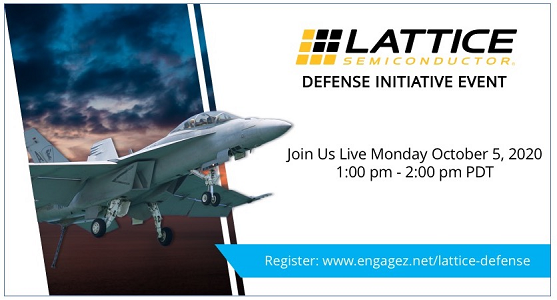 Double Exhibit Lattice Semiconductor contact: Jim Tavacoli phone: 415-717-3149 email: Jim.tavacoli@latticesemi.com web: www.latticesemi.com |
||
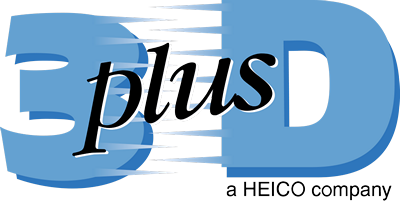 3D Plus contact: Timothee Dargnies phone: 510-824-5591 email: dcollins@3d-plususa.com web: www.3d-plus.com |
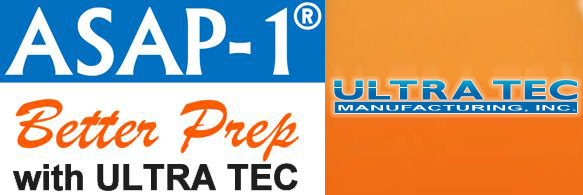 ASAP-1 - ULTRA TEC contact: Tim Hazeldine phone: 714-542-0608 email: tim@ultratecusa.com web: www.ultratecusa.com |
|
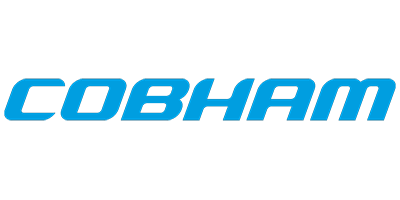 Cobham Gaisler contact: Sandi Habinc email: Sandi@gaisler.com phone: 011-46-70-795-0381 web: www.cobham.com/gaisler |
 EMPC contact: Larisa Milic email: lmilic@empc.com phone: 301-869-2317 web: www.empc.com |
|
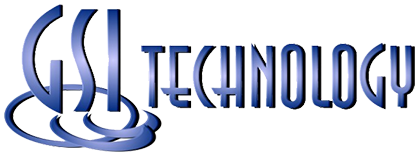 GSI Technology contact: Paul Armijo phone: 408-331-9863 email: parmijo@gsitechnology.com web: www.gsitechnology.com |
 Mentor, A Siemens Business contact: Melissa Ferro email: melissa_ferro@mentor.com phone: 510-354-5878 web: www.mentor.com |
|
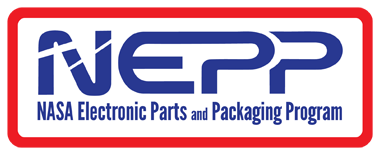 NASA Electronic Parts and Packaging (NEPP) Program contact: Jonny Pellish email: jonathan.pellish@nasa.gov phone: 301-286-1852 web: nepp.nasa.gov |
 Northwestern Medicine Proton Center contact: Steve Laub email: steven.laub@nm.org phone: 630-821-6376 web: www.protoncenter.nm.org |
|
 Radiation Test Solutions, Inc. contact: Malcolm Thomson email: mthompson@radiationtestsolutions.com phone: 719-339-3146 web: www.radiationtestsolutions.com |
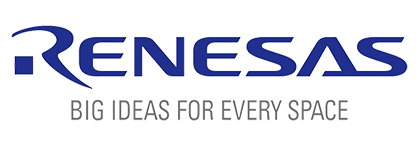 Renesas Electronics America contact: Eric Thomson phone: 321-724-7247 email: eric.thomson.eb@gr.renesas.com web: www.renesas.com |
|
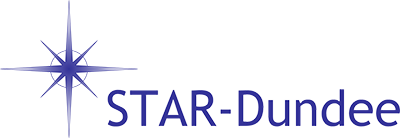 STAR-Dundee contact: Alberto Gonzalez Villafranca email: alberto.gonzalez@star-dundee.com phone: +44 1382 201755 web: www.star-dundee.com |
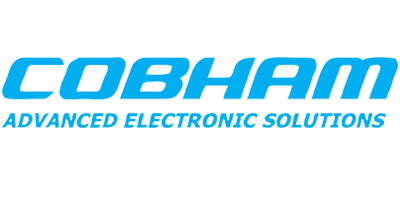 Cobham Advanced Electronic Solutions contact: Tony Jordan phone: 719-594-8252 email: tony.jordan@cobham.com web: www.cobham.com/CAES |
|
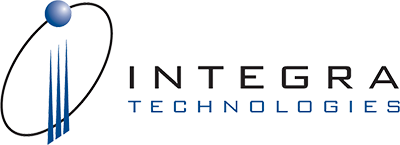 Integra Technologies contact: Ted Barlett email: ted.barlett@integra-tech.com phone: 316-630-6801 web: www.integra-tech.com |
 EPC Space contact: Max Zafrani phone: 978-620-8271 email: sales@epc.space web: epc.space |
|
| Traditional Exhibitors | ||
|---|---|---|
 Tortuga Logic contact: Jennifer Spangle phone: 888-488-7706 email: jennifer@tortugalogic.com web: http://www.tortugalogic.com |
 Blue Pearl Software contact: Jennifer Treiber email: jenn.treiber@bluepearlsoftware.com phone: 408-961-0121 web: www.bluepearlsoftware.com |
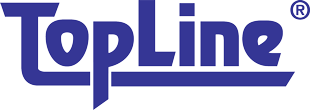 TopLine contact: Martin Hart email: info@topline.tv phone: 800-776-9888 web: www.topline.tv |
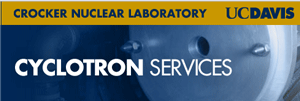 Crocker Nuclear Laboratory, UC Davis contact: Eric Prebys email: eprebys@ucdavis.edu phone: 530-771-7024 web: crocker.ucdavis.edu |
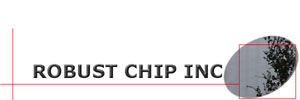 Robust Chip, Inc. contact: Klas Lilja phone: 925-425-0820 email: klas.lilja@robustchip.com web: www.robustchip.com |
 Oak Ridge National Laboratory Spallation Neutron Source contact: Bernie Riemer phone: 865-574-6502 email: riemerbw@ornl.gov web: neutrons.ornl.gov/sns |
 SynthWorks contact: Jim Lewis phone: 503-590-4787 email: jim@synthworks.com web: synthworks.com |
 Scientic contact: Bryan Hughes phone: 256-319-0800 email: Bryan.Hughes@scientic.com web: www.scientic.com |
Silicon Technologies, Inc. contact: Ken Potts phone: 385-695-5904 email: sales@silicontechnologiesinc.com web: silicontechnologiesinc.com |
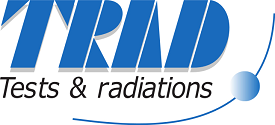 TRAD Tests & Radiation contact: Christian Chatry phone: +33 5 61 00 95 60 email: christian.chatry@trad.fr web: www.trad.fr |
 Flex Logix contact: Andy Jaros phone: 925-785-3016 email: andy@flex-logix.com web: www.flex-logix.com |
 Allied Scientific Pro contact: Steeve Lavoie phone: 800-253-4107 email: sales@alliedscientificpro.com web: www.alliedscientificpro.com |
Registration for 2020 Has Closed
Hotel Details for 2020 Not Applicable
